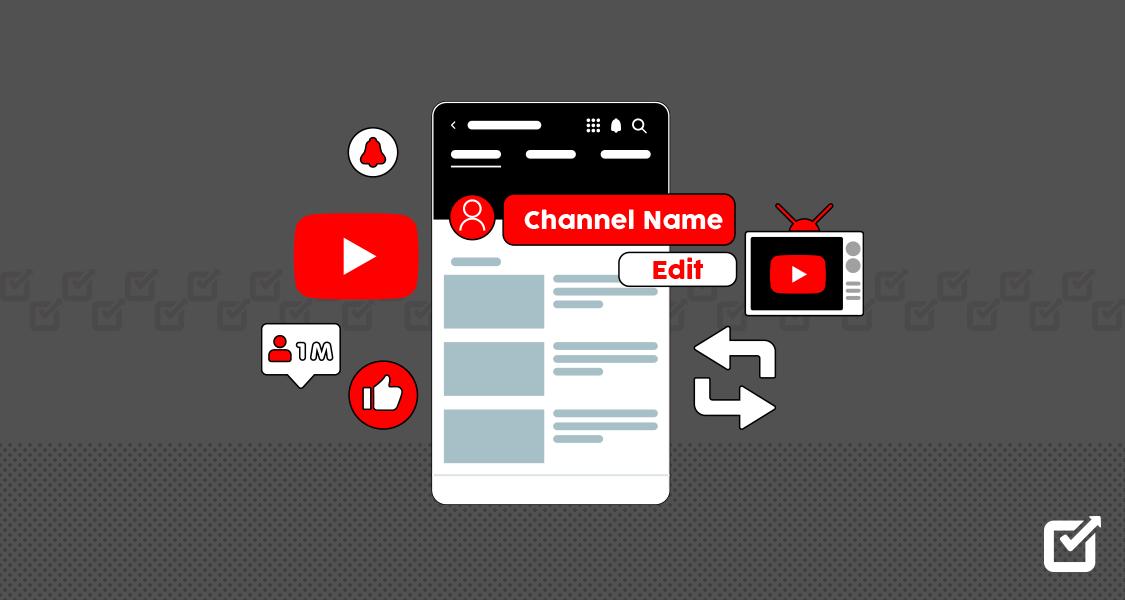Did you know that poor marketing is one of the biggest reasons for a startup’s failure?
It’s true—no matter how groundbreaking your idea is, your chances of success shrink fast if people don’t hear about it.
If you have a startup, you might often struggle with a tight budget, limited resources, and small teams. Right?
It may also leave little room for effective marketing strategies.
The good news? Marketing doesn’t have to be complicated or cost a fortune.
As a startup, every penny counts.
That’s why you should invest in the right marketing tools for startups to help you achieve your goals within your budget.
With the right tools, you can streamline your efforts, maximize your reach, and set your startup on the path to real growth.
In this comprehensive guide, we’ll introduce you to 10+ essential marketing tools for startups that can help your startup thrive.
From social media management and SEO tools to email marketing and analytics platforms, we’ve covered everything.
So, are you ready to level up your marketing game?
Let’s get into it!
Short Summary!
- Poor marketing is a significant reason for startup failure, but investing in the right marketing tools can help you achieve your marketing goals.
- Marketing tools help startups manage limited resources by automating tasks like social media management, email marketing, and SEO, enhancing efficiency.
- Social media management tools like Social Champ, Hootsuite, and Buffer streamline social media posting and engagement, making them essential for startups.
- Email marketing tools such as Mailchimp, Sendinblue, and ConvertKit automate customer communication and nurture leads, optimizing marketing campaigns.
- SEO tools like Ahrefs, SEMrush, and Yoast SEO improve search engine rankings and drive organic website traffic, which is crucial for startup visibility.
- Choosing the right marketing tools involves considering pricing, scalability, speed, and analytics to align with startup goals and resources.
What Are Marketing Tools?
Marketing tools help businesses plan, execute, and measure their marketing strategies.
These tools are software and platforms designed to assist businesses in executing, managing, and analyzing marketing campaigns.
Additionally, they help streamline content creation, social media scheduling, email marketing, and customer engagement, enabling businesses to reach their target audience.

Take Your Startup’s Marketing to the Next Level Like a Champ!
Schedule and automate your posts for multiple social media platforms simultaneously with Social Champ!
Featured Article: 10 Best LinkedIn Management Tools for You in 2025
Why Startups Need Marketing Tools?
Startups operate in a dynamic environment where resources are often limited, but building brand awareness and attracting customers is urgent.
Startups must find ways to level the playing field when competing against established brands with more significant budgets and teams.
Marketing tools play a crucial role in helping startups maximize their marketing potential without exhausting their resources.
Startups need marketing tools to save time, enhance productivity, and optimize their marketing strategies.
These tools provide startups with advanced technologies that automate social media posting, email marketing, and lead generation.
Moreover, tools like Social Champ help you choose the right plan for your business, enabling you to make a confident decision within your budget.
By using marketing tools, startups can focus more on creative strategies and customer relationships while the software handles repetitive tasks.
Featured Article: A Guide to Social Media Marketing for Doctors: Strategies, Tools, & Best Platforms
Key Categories of Marketing Tools
When it comes to building and growing your business, the right marketing tools can make all the difference.
From managing social media to optimizing your SEO efforts, using the right tools ensures efficiency, scalability, and success.
Below are some of the most effective categories of digital marketing tools that businesses—whether startups or large enterprises—should consider.
Social Media Management Tools
Social media is essential to any marketing strategy, but managing multiple platforms can be overwhelming.
That’s where social media management tools come into play.
These tools allow you to efficiently create, schedule, and monitor posts across different social networks.
Social Champ
Social Champ is one of the best tools for automating and managing social media posts across multiple platforms.
It’s perfect for businesses looking to streamline their social media marketing efforts by allowing users to post to all social media at once.

Social Champ’s dashboard With advanced scheduling, analytics, and content recycling features, Social Champ makes it easy to stay consistent and engage your audience.
The platform is user-friendly and ideal for startups and small businesses that need an efficient social media scheduler to save time while maximizing impact.
Hootsuite
Hootsuite is widely known as one of the most powerful social media management platforms, allowing businesses to manage several social media accounts from one dashboard.
It offers extensive scheduling options, performance tracking, and engagement tools, making it a go-to for brands that need robust social listening features.

Hootsuite landing page Its advanced analytics and team collaboration tools make it perfect for businesses looking to take their social media strategy to the next level.
Buffer
Buffer is a simple yet highly effective social media management tool designed for businesses that want a clutter-free solution.
It allows you to schedule, publish, and analyze posts across multiple platforms.
The clean interface makes Buffer user-friendly, and its analytics features provide insights that help improve your content strategy.

Buffer’s dashboard It’s ideal for small to medium businesses or startups looking for efficient tools to schedule posts and track performance.
Buffer is an excellent fit for those needing one of the best social media marketing tools to keep everything organized and streamlined.
Sprout Social
Sprout Social offers a comprehensive set of tools for social media management, including scheduling, analytics, and engagement features.
One of its standout features is Social Listening, which enables businesses to track brand mentions, monitor industry trends, and analyze competitor strategies.

Sprout Social’s dashboard With in-depth reporting, it provides insights that help brands improve their social media campaigns.
Whether you are looking for tools for team collaboration or advanced analytics, Sprout Social helps ensure you have the right plan for your business.
Email Marketing Tools
Email marketing remains one of the most effective channels for nurturing leads and maintaining customer relationships.
Here are some of the top tools for small business marketing focused on email.
Mailchimp
Mailchimp is one of the most popular email marketing platforms, offering comprehensive tools for creating and managing email campaigns.
It also includes automation features, allowing businesses to nurture leads, send follow-up emails, and track customer journeys.

Mailchimp’s landing page Thanks to its scalable pricing plans, Mailchimp is particularly helpful for small businesses and startups.
It’s an essential tool for startups that want to enhance their email marketing efforts with marketing automation software that’s easy to use and highly effective.
Sendinblue
Sendinblue is a versatile marketing tool that goes beyond email campaigns by also offering SMS marketing, allowing businesses to reach customers on multiple channels.
Its automation features enable businesses to create workflows that trigger emails or texts based on customer actions.

Sendinblue’s landing page The intuitive drag-and-drop editor makes it easy to design beautiful emails, while its comprehensive reporting tools help optimize campaigns.
Sendinblue is a great choice for businesses wanting a combined solution for email and SMS marketing, perfect for tools for small business marketing.
ConvertKit
ConvertKit now Kit is designed for content creators and small businesses, offering easy-to-use email automation and segmentation features.
It allows users to build targeted email campaigns based on customer behavior, making it ideal for creators who need to nurture their audience in a more personalized way.

ConvertKit’s dashboard ConvertKit excels in helping users with automation sequences that guide customers through sales funnels.
If you’re a content creator looking for marketing automation software, ConvertKit is the tool to streamline your email marketing process.
SEO and Content Marketing Tools
For businesses looking to increase visibility and drive organic traffic, the best content marketing tools for businesses are essential.
SEO tools can help you understand what your audience is searching for and optimize your content accordingly.
Ahrefs
Ahrefs is one of the most comprehensive SEO tools on the market, offering a wide range of features from keyword research to backlink analysis and site audits.
It’s beneficial for businesses that want to improve their search engine rankings by discovering high-value keywords and analyzing competitors.

Ahref’s landing page With Ahrefs, users can also track content performance and monitor backlinks, making it an essential tool for any digital marketing strategy.
As one of the best content marketing tools for businesses, Ahrefs ensures you’re always one step ahead in your SEO efforts.
SEMrush
SEMrush is a versatile tool that offers SEO, content marketing, and competitive analysis features all in one platform.
It provides keyword tracking, site audits, backlink analysis, and detailed competitor analysis, making it invaluable for businesses looking to stay ahead of the curve.

SEMrush’s dashboard SEMrush also offers insights into paid advertising campaigns, helping marketers fine-tune organic and paid strategies.
It’s undoubtedly one of the best social media marketing tools for companies looking to gain a competitive edge through SEO and content marketing.
Yoast SEO
Yoast SEO is a powerful plugin for WordPress users, making on-page SEO optimization accessible and easy to implement.
The tool provides actionable insights on improving your website’s SEO, including keyword optimization, readability analysis, and meta tag suggestions.

Yoast SEO’s landing page It’s ideal for small businesses and bloggers who want a simple yet effective way to enhance their SEO efforts without technical expertise.
Yoast SEO is perfect for those looking to get started with marketing automation software for SEO optimization.
Analytics and Reporting Tools
To grow your business, understanding what works and what doesn’t is crucial.
This is where analytics and reporting tools come in handy, offering detailed insights into user behavior, website traffic, and campaign performance.
Google Analytics
Google Analytics is a must-have for anyone looking to understand their website’s performance.
The tool provides in-depth insights into traffic sources, user behavior, and conversion rates, allowing businesses to make data-driven decisions.

Google Analytics’ landing page Whether you’re running an online store, blog, or website, Google Analytics offers real-time reporting that helps optimize performance.
For businesses serious about improving their online presence, it’s one of the top digital marketing tools for gathering and analyzing valuable data.
Hotjar
Hotjar offers visual insights into how users interact with your website through features like heatmaps and session recordings.
This tool is invaluable for understanding where users click, how far they scroll, and what elements they engage with most.

Hotjar’s dashboard Hotjar also offers user surveys, helping you gather feedback directly from your audience.
By identifying friction points in the user experience, Hotjar enables businesses to optimize website layouts and design for better conversions.
Mixpanel
Mixpanel focuses on product analytics, helping businesses track user behavior across websites and apps.
This tool provides detailed insights into how users engage with your product, enabling businesses to make data-backed decisions.

Mixpanel’s dashboard Whether you’re interested in improving user retention or understanding how features are being used, Mixpanel offers in-depth reporting that helps refine product strategy.
For startups and product-focused companies, Mixpanel is one of the best tools for small business marketing to analyze customer behavior and improve product offerings.
Whether you’re managing a startup’s social media presence or scaling a larger enterprise, the key to success is having the right tools.
By choosing the best marketing automation software and utilizing these tools effectively, you can streamline your efforts and focus on what truly matters—growing your business.
Featured Article: 35+ Powerful YouTube Tools to Drive Results in 2025
How to Choose the Right Marketing Tools for Your Startup
Selecting the right marketing tools is crucial for any startup aiming for growth.
There are many key factors, such as pricing, scalability, speed, and so on.
With limited resources, choosing wisely can make all the difference in streamlining your efforts and achieving your business goals.
Let’s discuss one by one.
Pricing
Pricing is one of the most important factors when choosing digital marketing tools for startups.
Many tools offer different pricing models—ranging from free tiers to premium, subscription-based plans.
As a startup, evaluating what you truly need versus what you can afford is crucial.
If you don’t have a separate marketing budget, always look for free marketing tools for startups to help you in the early stages.
Solution
The right solution addresses the specific challenges your startup is facing.
Whether you need tools for social media management, SEO optimization, or email marketing, ensure the tool provides solutions tailored to your goals.
For instance, if you’re looking to automate repetitive tasks, look into marketing automation tools for startups.
These tools can help save time, streamline workflows, and increase efficiency.
Speed
Speed is vital for startups, where every minute counts.
The tools you choose should enhance productivity and reduce manual workload.
For instance, marketing automation tools for startups can significantly speed up marketing processes by automating tasks.
Look for easy tools to set up and use without a steep learning curve.
Scalability
As your startup grows, so will your marketing needs.
It’s essential to choose tools that can scale with your business.
Initially, you may start with free marketing tools for startups, but eventually, you’ll need more advanced features.
Many digital marketing tools for startups offer scalable options, allowing you to upgrade features or add users as your business expands.
Analytics
Data-driven decision-making is vital for startups.
Choose to market tools that provide robust analytics and reporting capabilities.
Analytics help you track performance, monitor campaign success, and measure ROI.
Having access to detailed reports is essential for understanding customer behavior, optimizing content, and measuring traffic.

Supercharge Your Startup’s Marketing Smoothly Today!
Track key metrics to measure the effectiveness of your campaigns and make data-driven decisions with Social Champ!
Best Practices for Effective Use of Tools
Using marketing tools effectively can be a game-changer for any business, especially for startups looking to scale quickly.
However, having the tools is only half the battle.
Using them efficiently ensures you maximize their potential and improve your marketing results.
Below are some best practices to guide the effective use of marketing tools.
Set Clear Objectives
Before diving into any marketing tool, clearly outline your goal.
Whether you’re increasing website traffic, boosting social media engagement, or generating more leads, having well-defined goals will help you choose and use tools more effectively.
This will allow you to focus on features that align with your objectives, avoiding distractions and unnecessary complexity.
Train Your Team
Even the best tools are only effective with proper training.
Ensure your marketing team knows how to use the tools to their full potential.
Whether attending webinars, reading guides, or conducting in-house training sessions, educating your team on the platform’s features will maximize their productivity.
Well-trained users are likelier to use the tool’s full capabilities, leading to better marketing outcomes.
Regularly Review Performance
Consistently analyzing performance data is essential for optimizing your use of marketing tools.
Most platforms come with built-in analytics to help track metrics like engagement, conversion rates, and ROI.
Use these insights to make informed decisions, adjust your campaigns, and refine your strategies.
Reviewing this data regularly ensures your efforts align with your overall marketing goals and continue to deliver results.
Stay Updated on New Features
Marketing tools evolve, with new features and updates being rolled out regularly.
Stay updated on these changes to ensure you’re using the latest functionality.
Subscribing to newsletters, joining user communities, and reading product blogs can inform you about new capabilities to enhance your marketing efforts.
Early adoption of new features can give you a competitive edge in executing innovative campaigns.
Avoid Tool Overload
While using as many tools as possible is tempting, too many platforms can lead to clarity and efficiency.
Instead, focus on using a few well-chosen tools that integrate well with each other and provide maximum functionality.
Having fewer tools to manage will streamline your workflow, reduce costs, and allow your team to become proficient in the tools you use.
Conclusion
In 2024, using the right marketing tools for startups is essential for growth and success.
Startups with limited resources and tight budgets need tools to streamline processes, improve efficiency, and deliver measurable results.
From social media management and SEO optimization to email marketing and analytics, choosing the right combination of tools can significantly improve your marketing efforts.
Among the best tools, Social Champ stands out for startups looking to manage and automate their social media presence.
Its intuitive interface, scheduling capabilities, and detailed analytics make it an excellent choice for small businesses aiming to boost their online visibility.



























